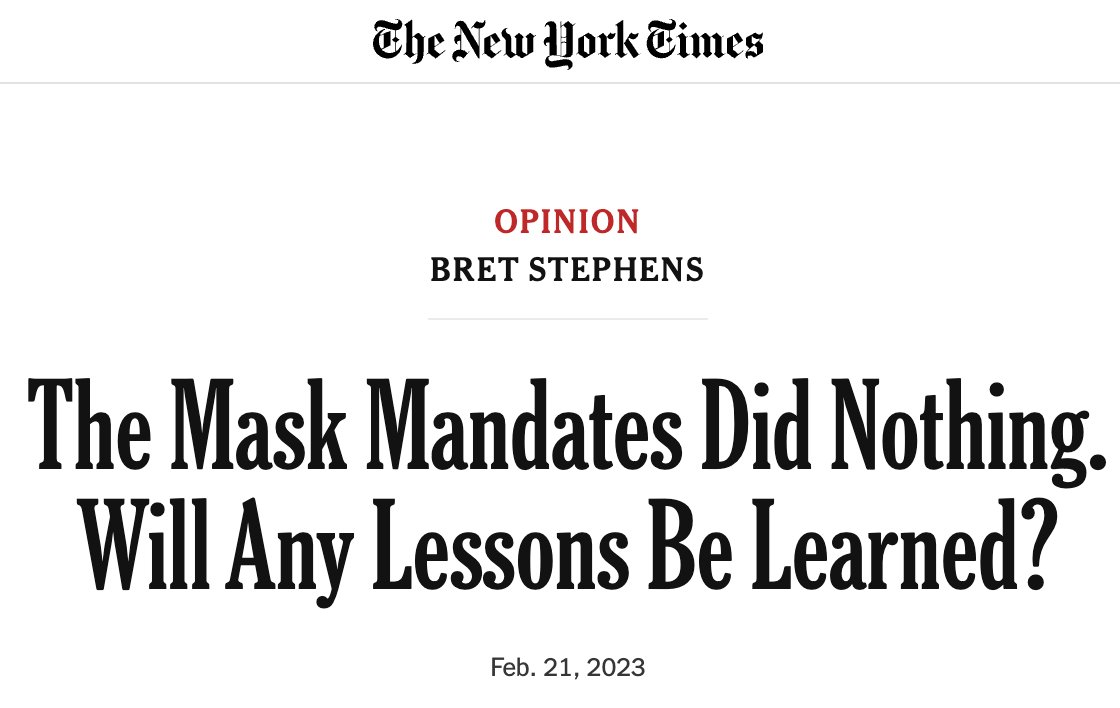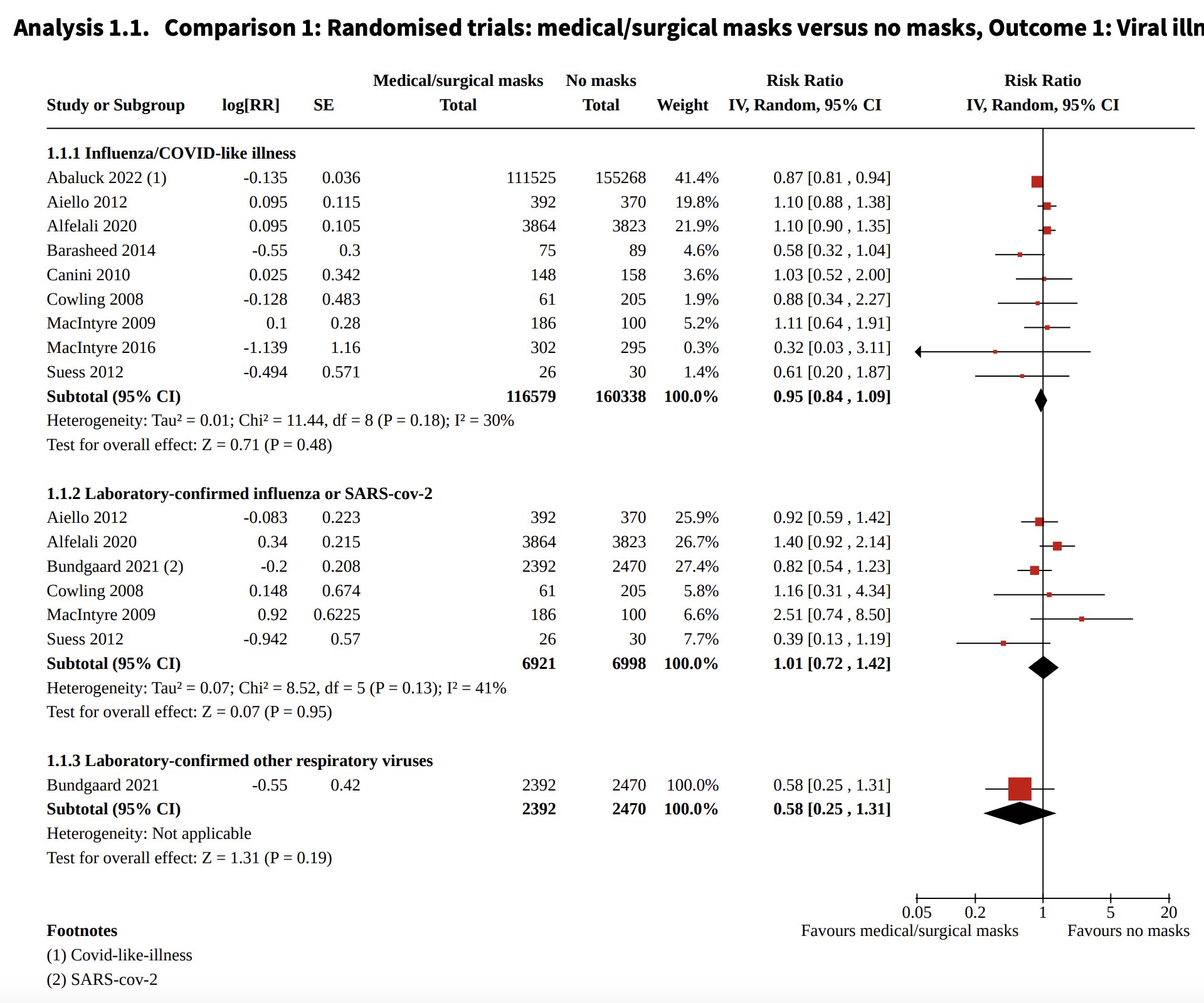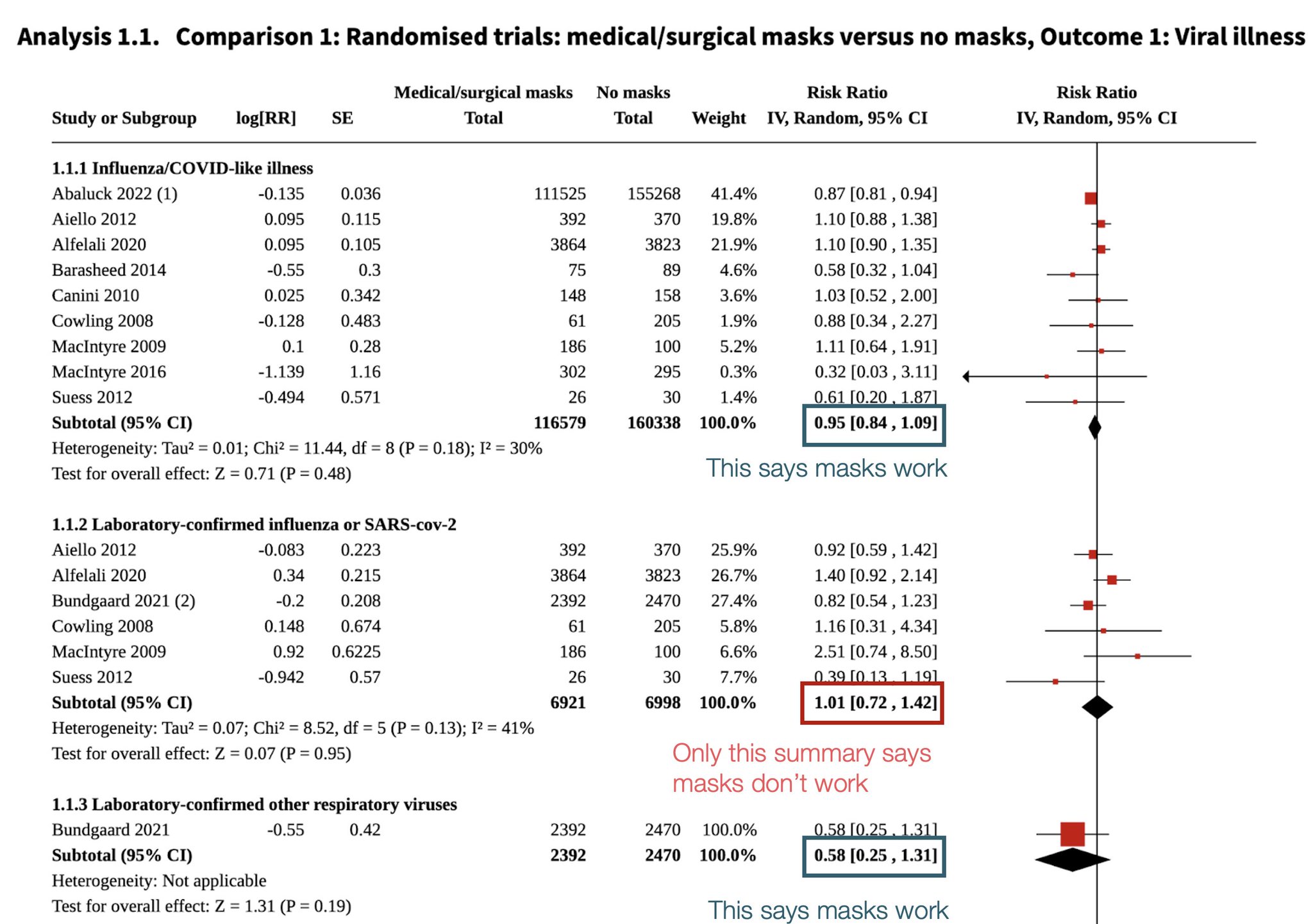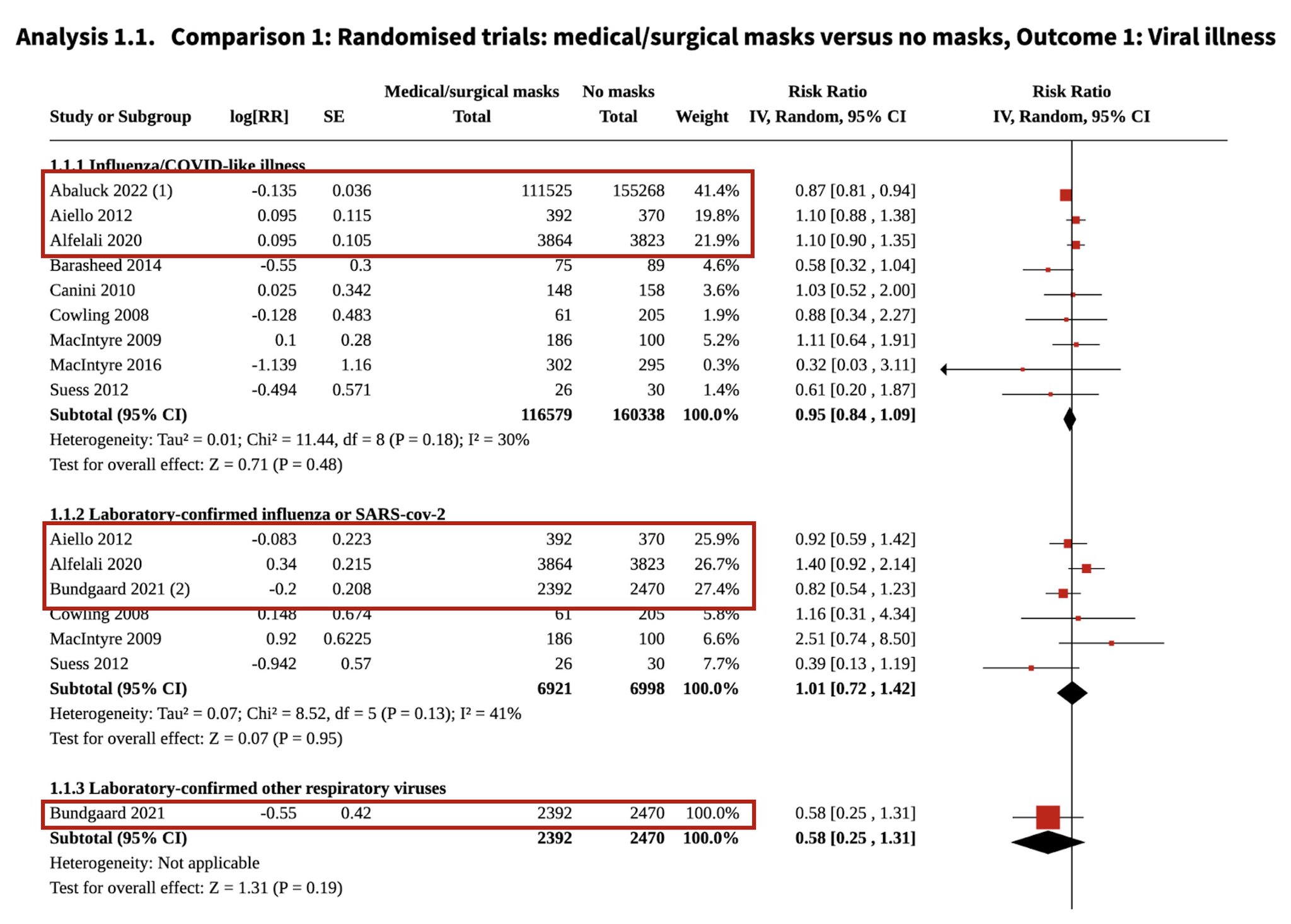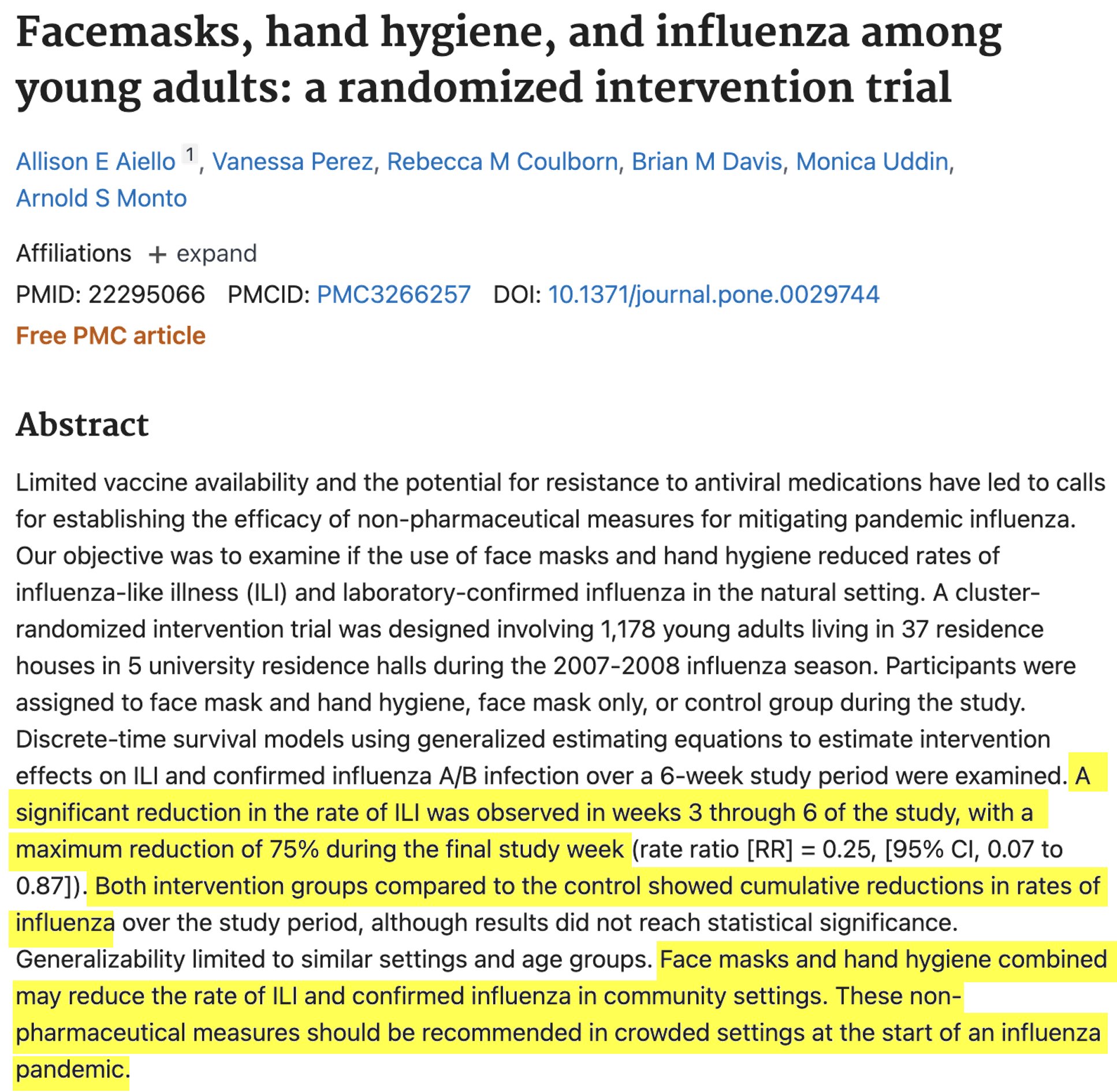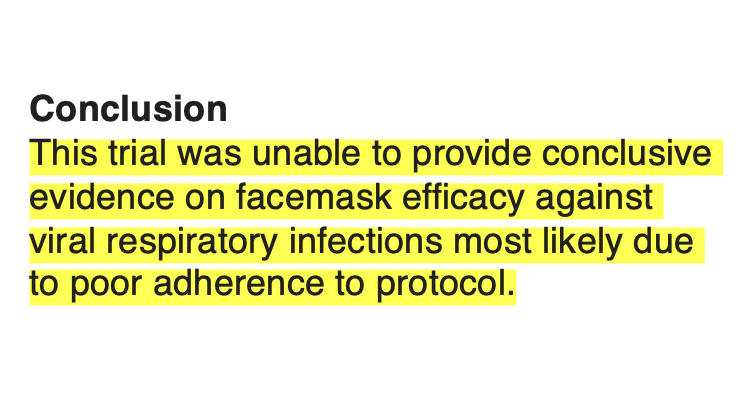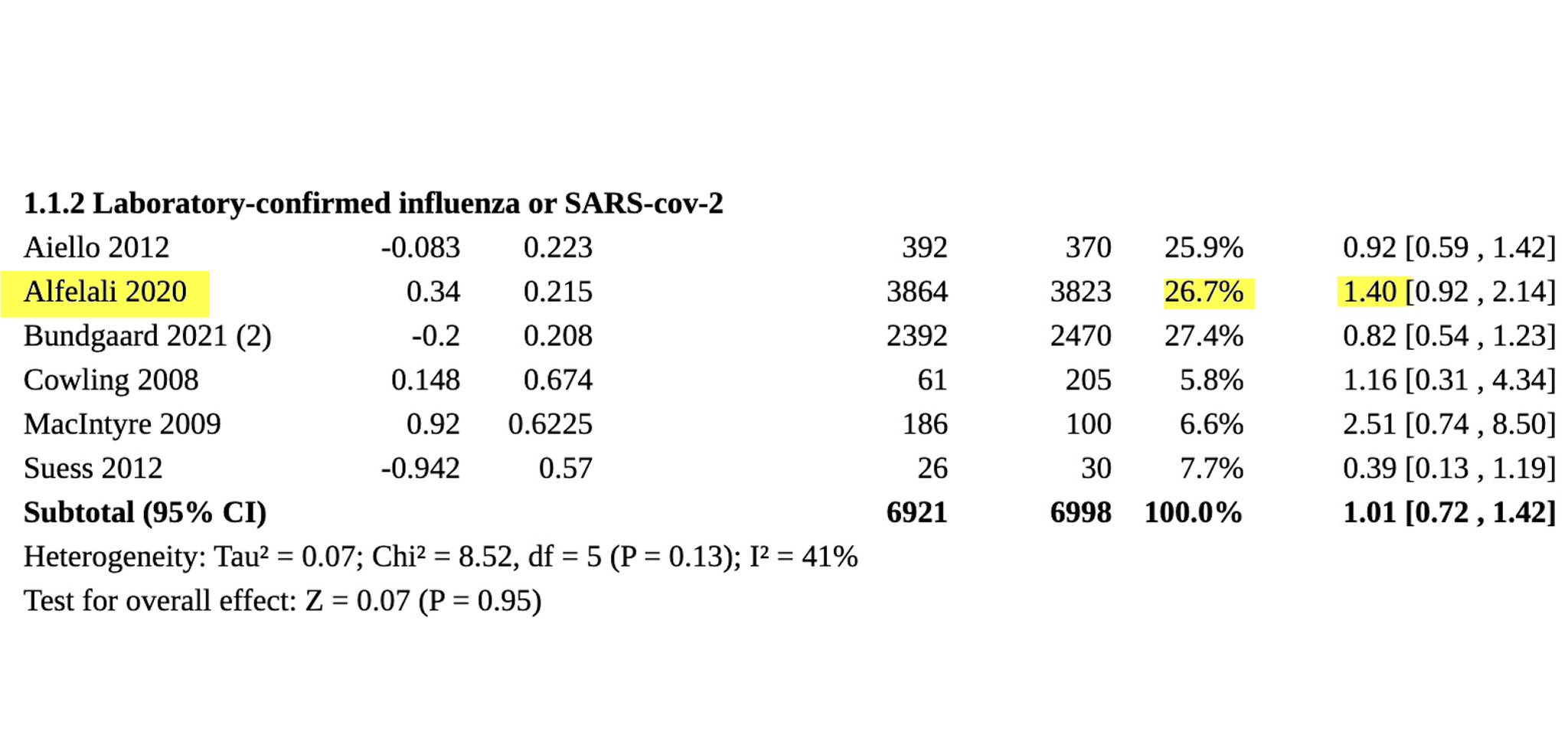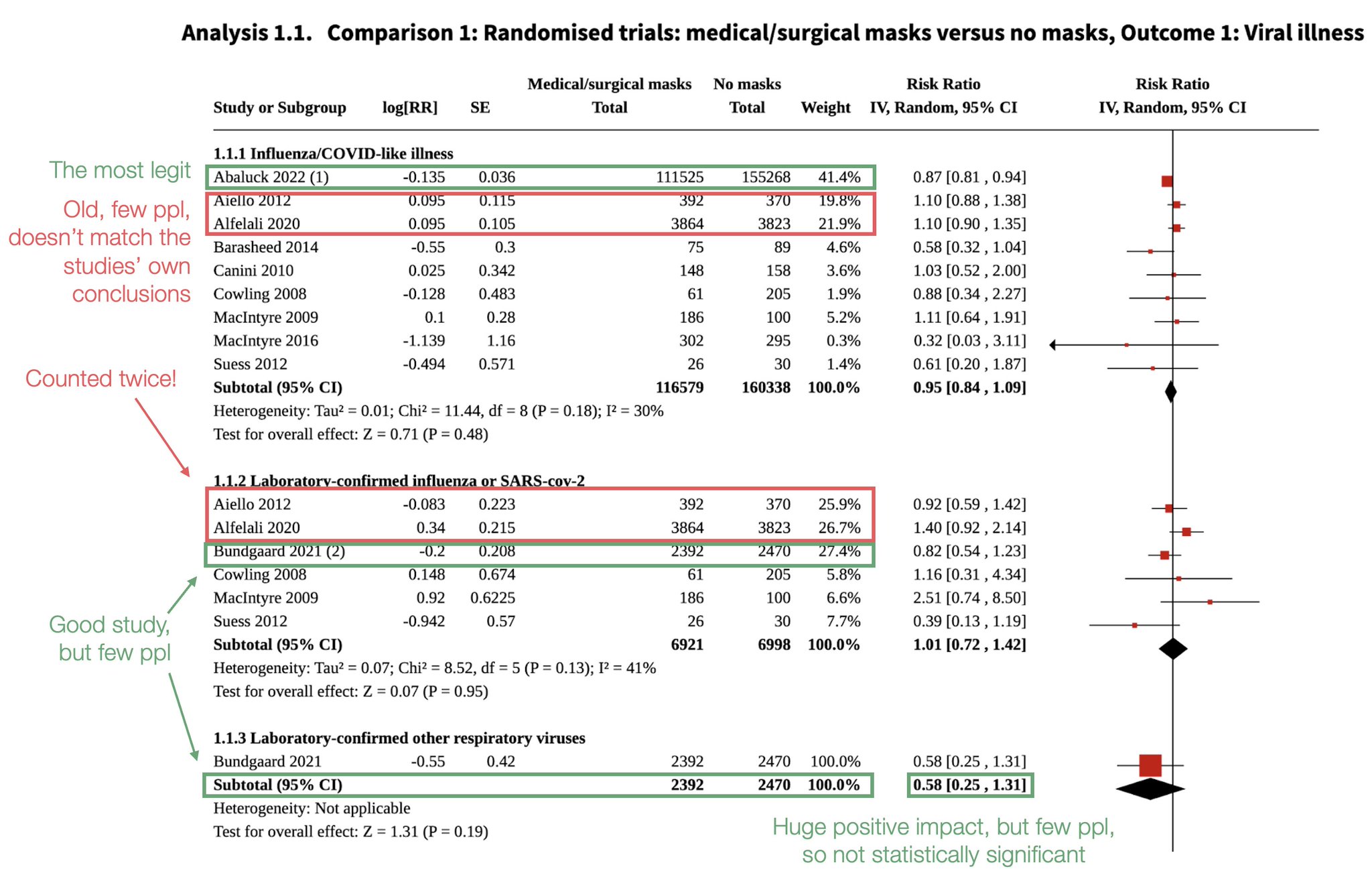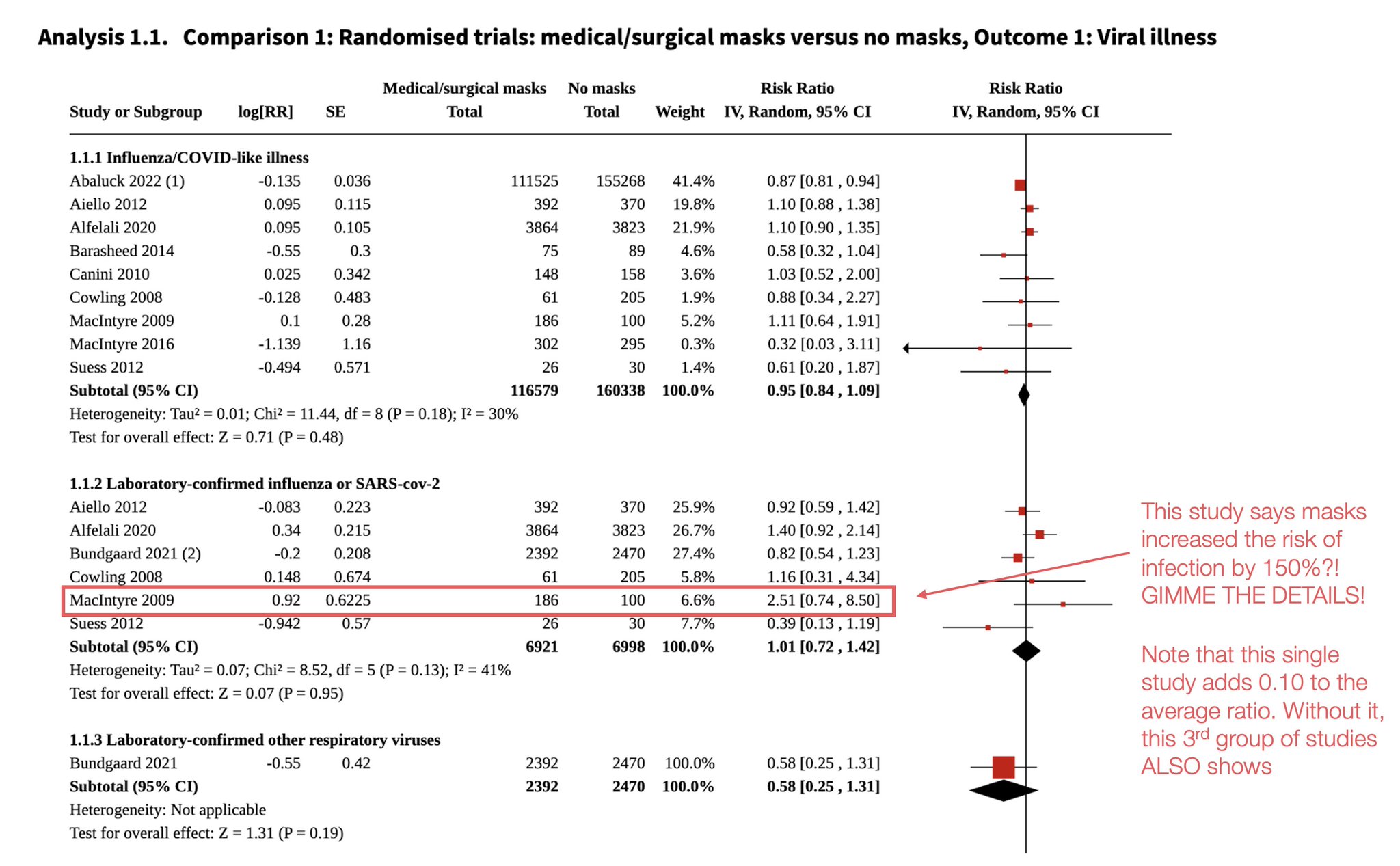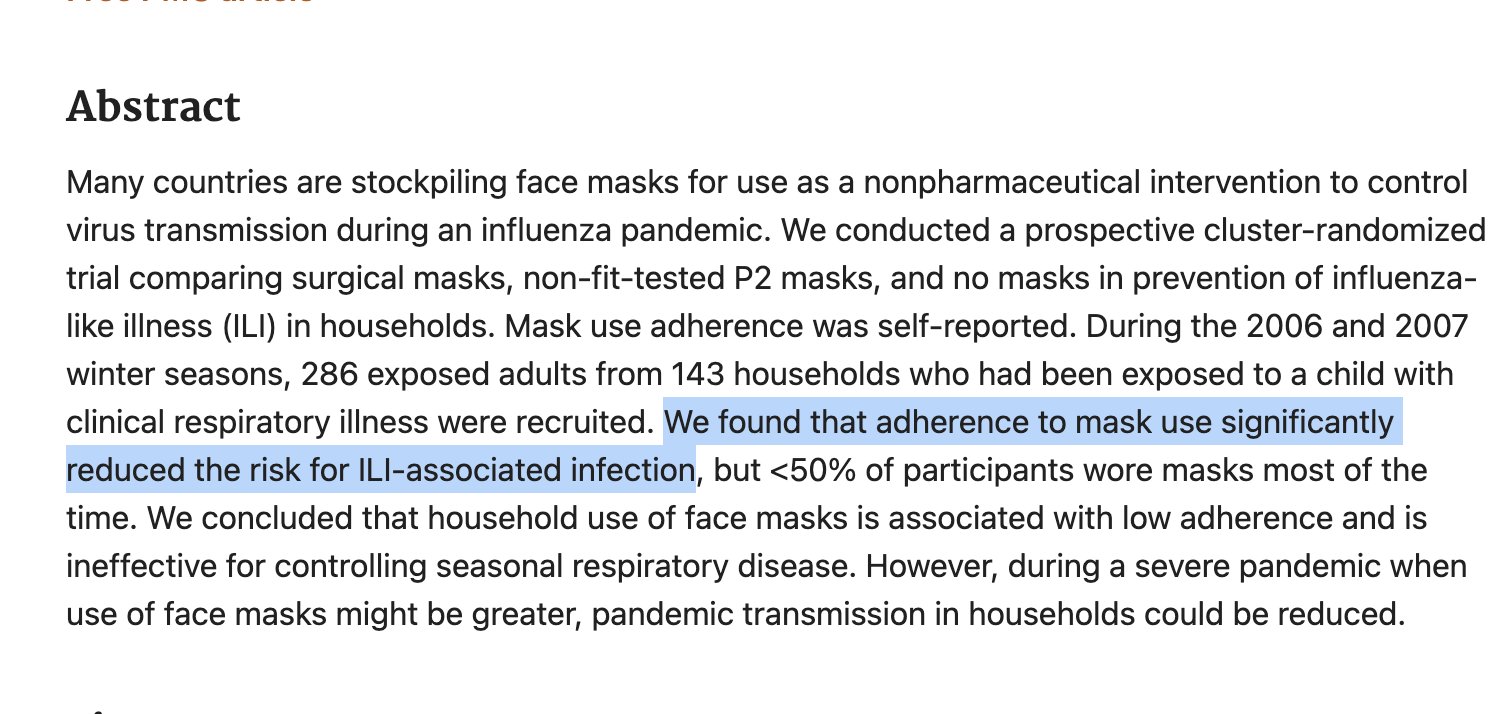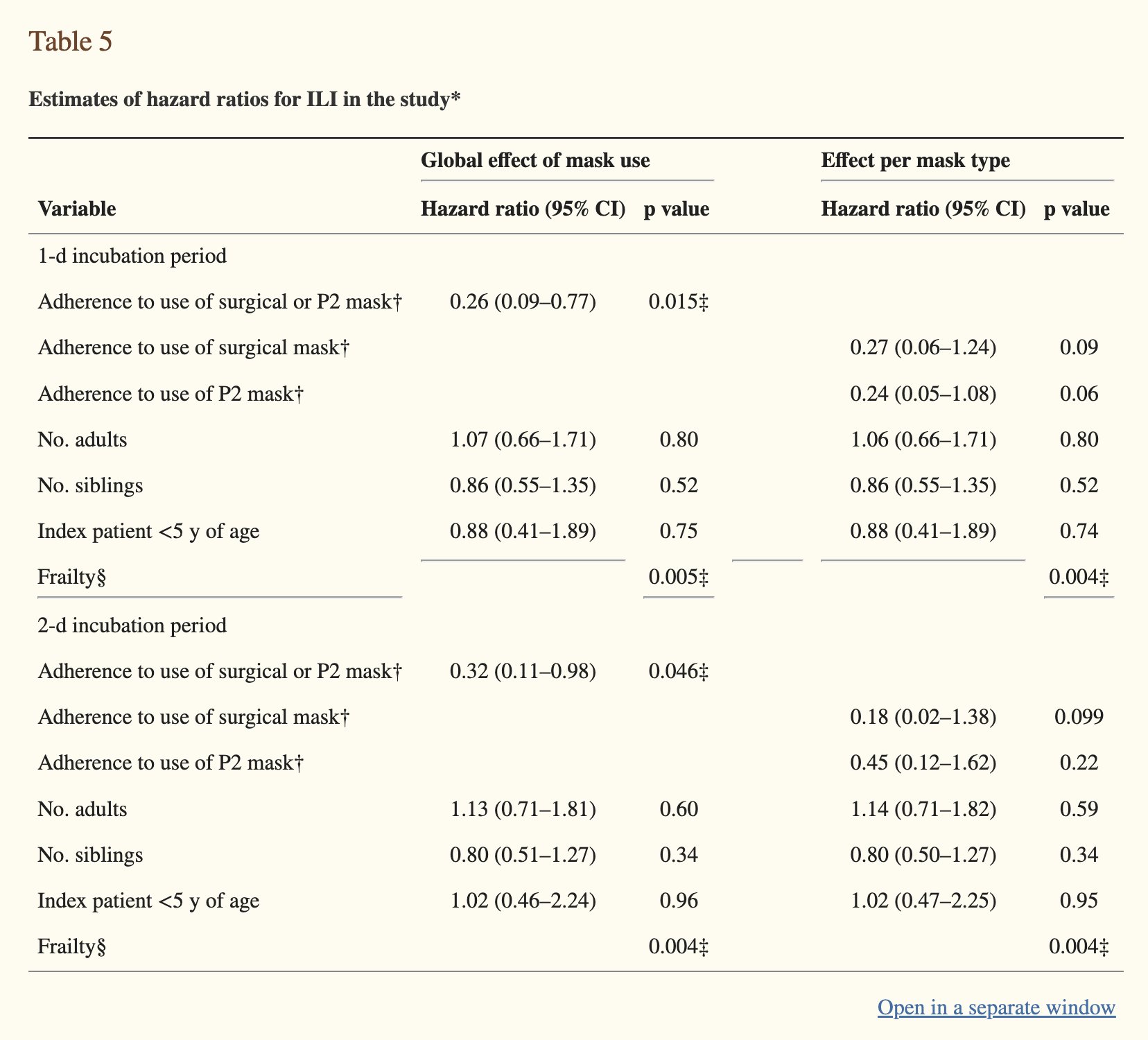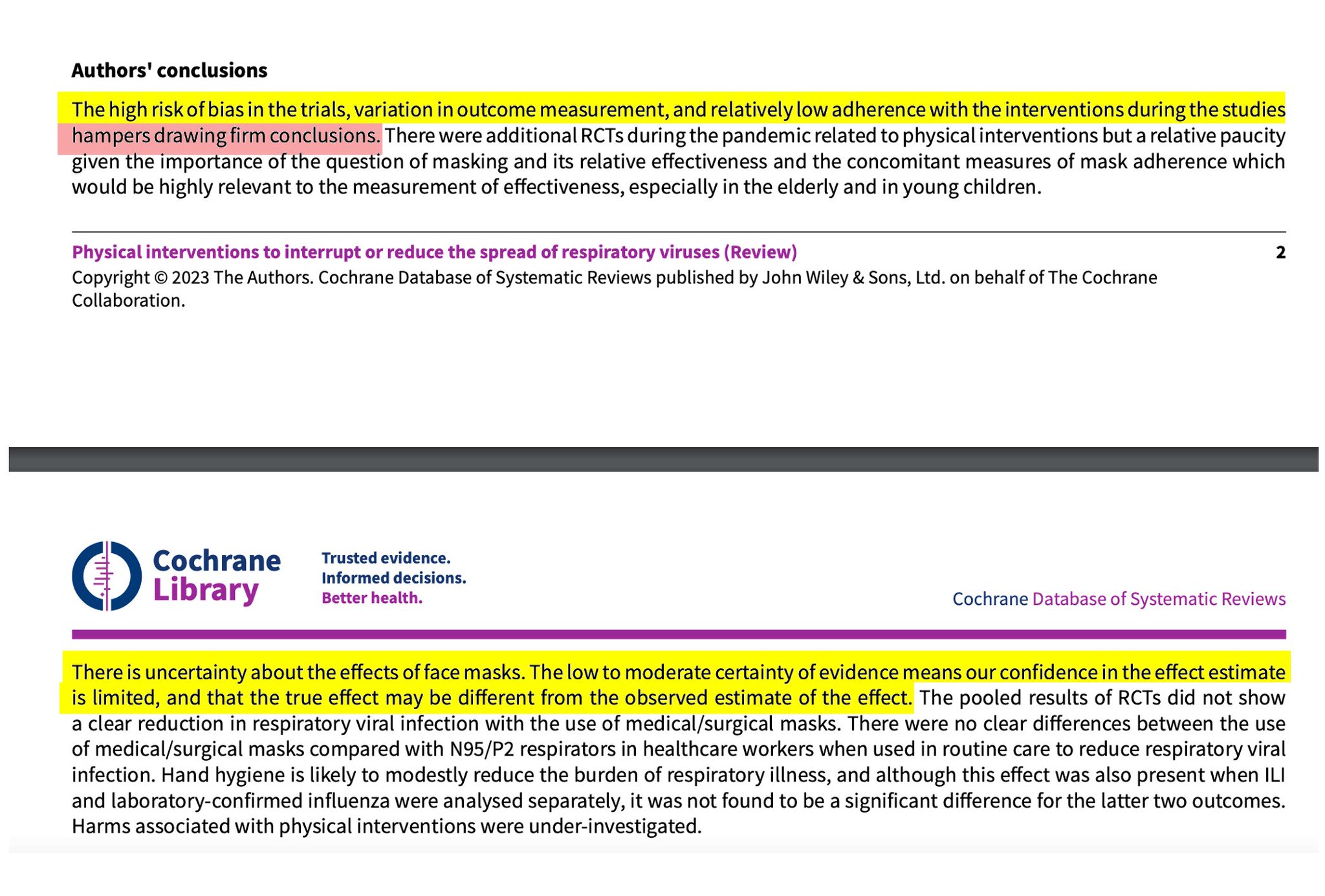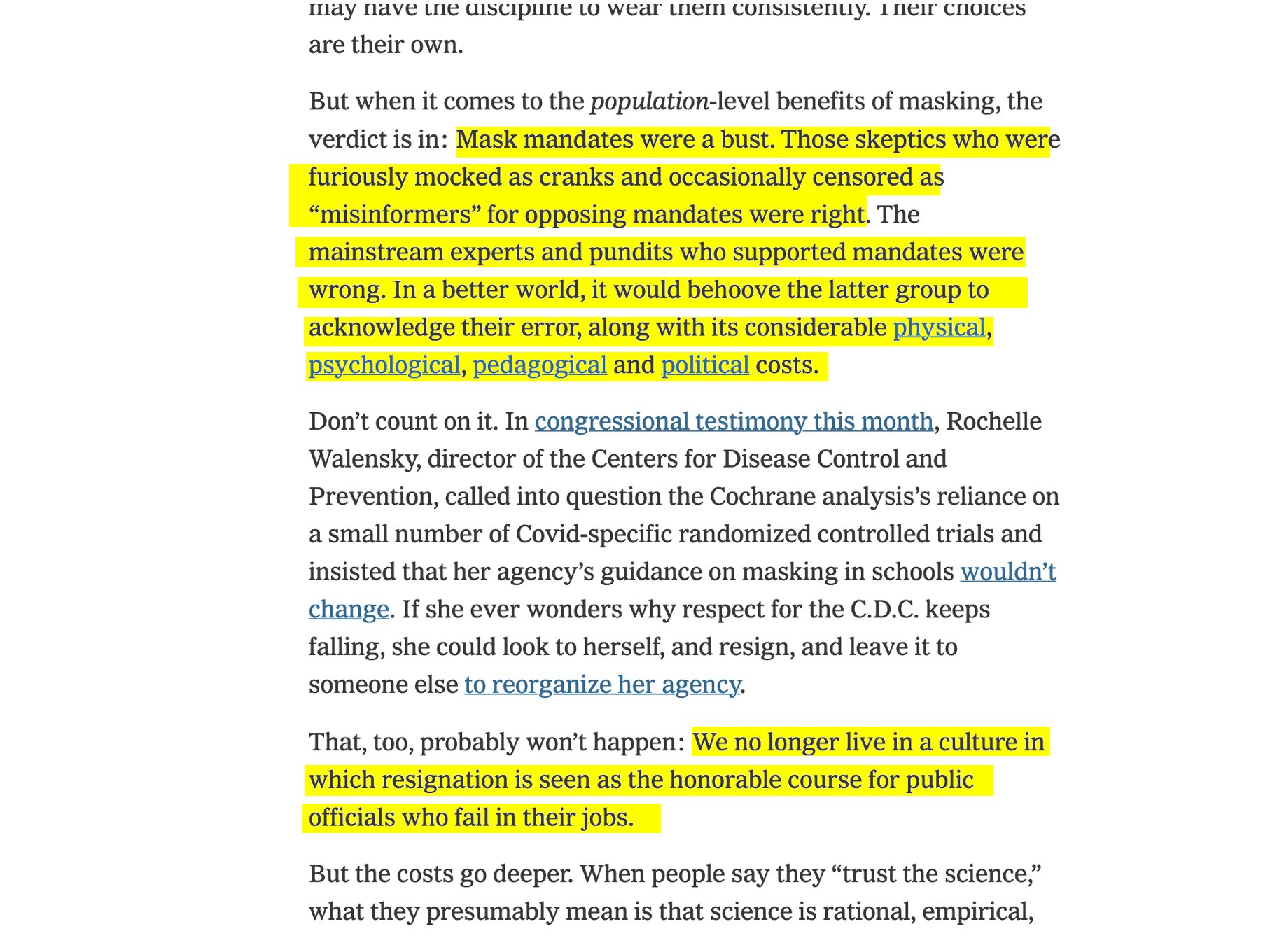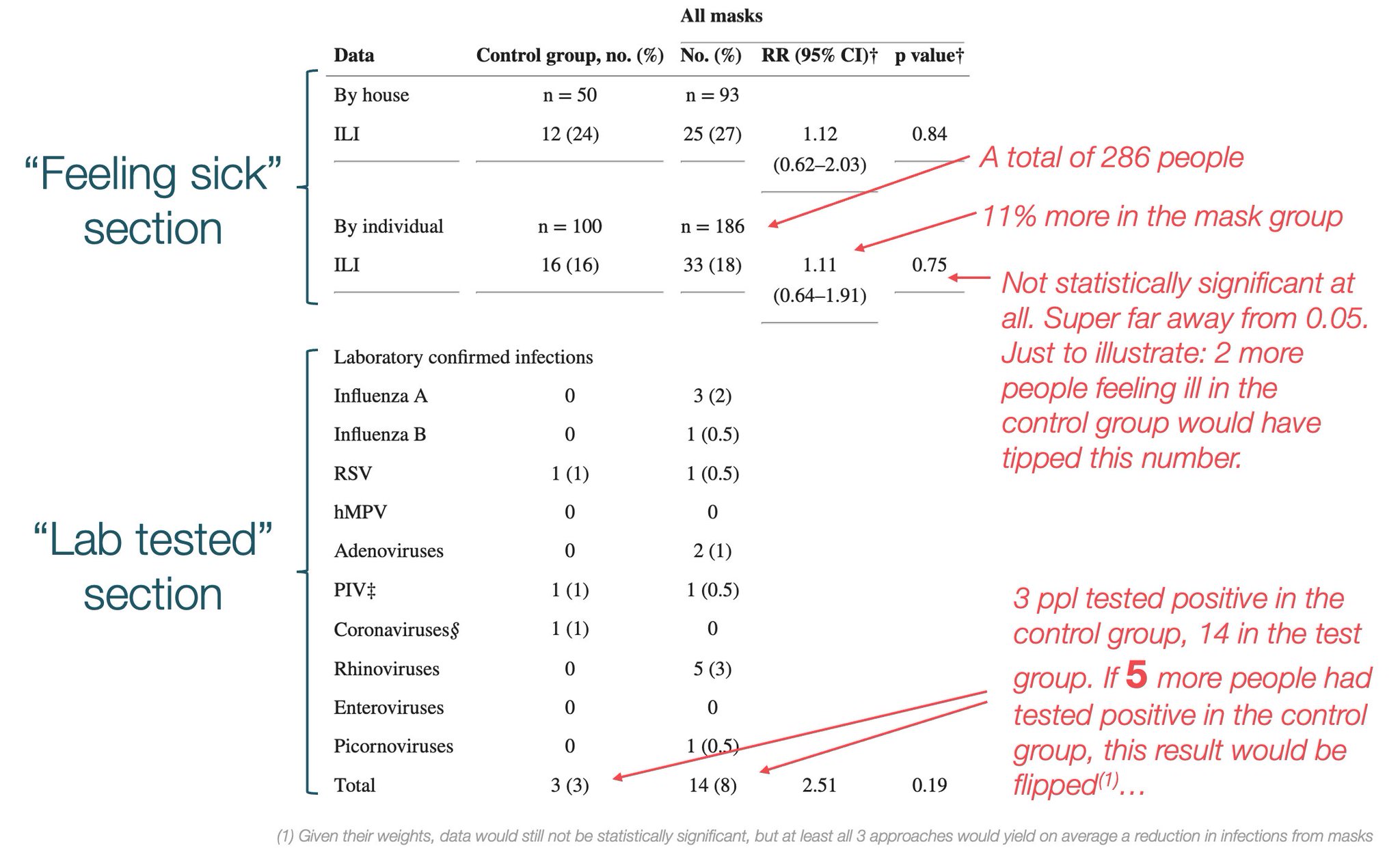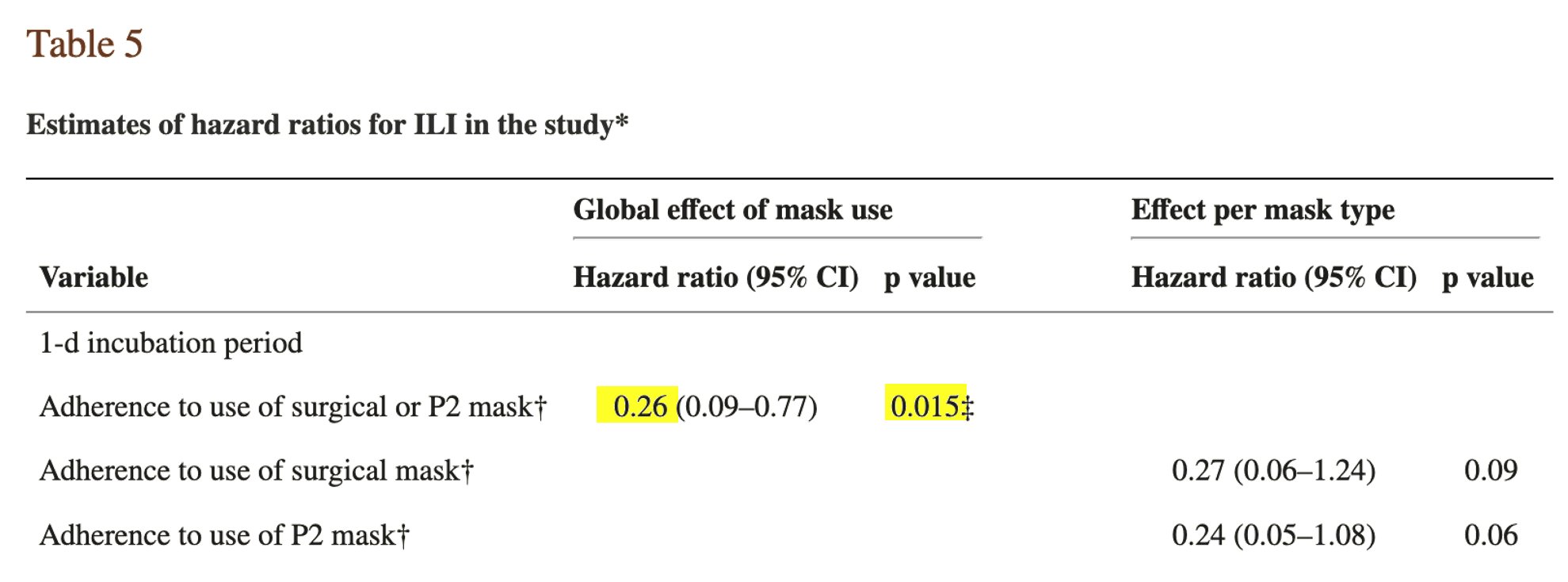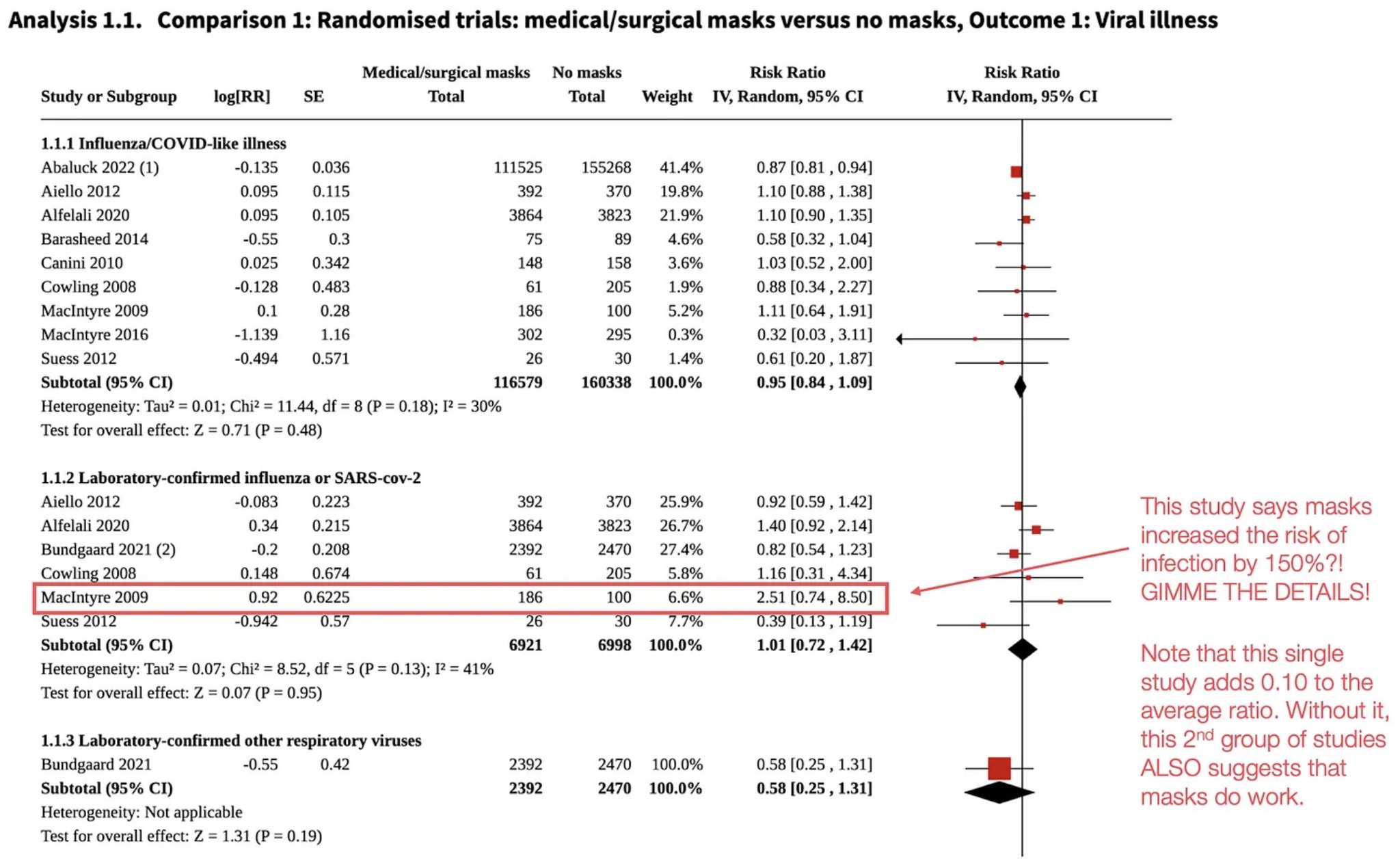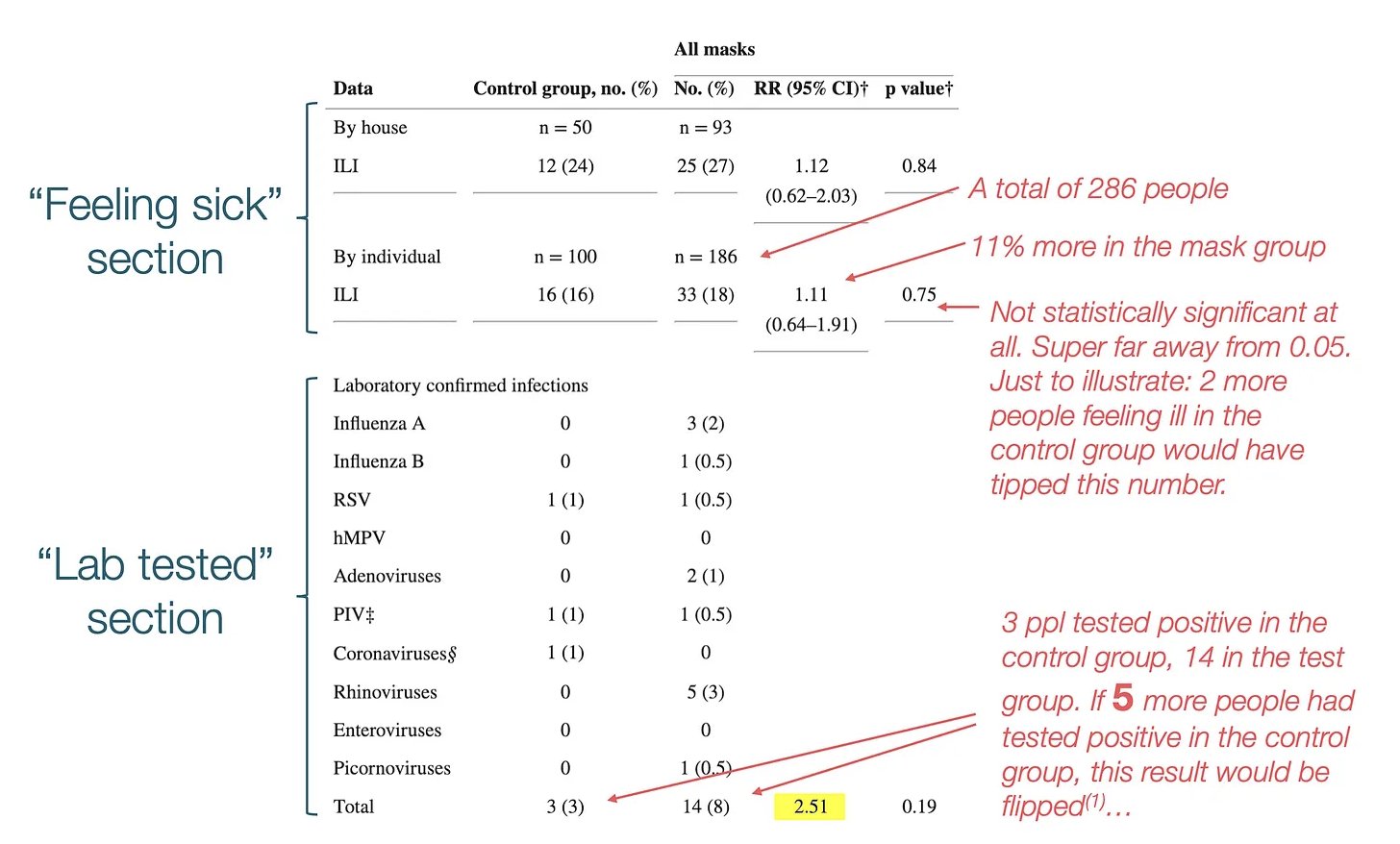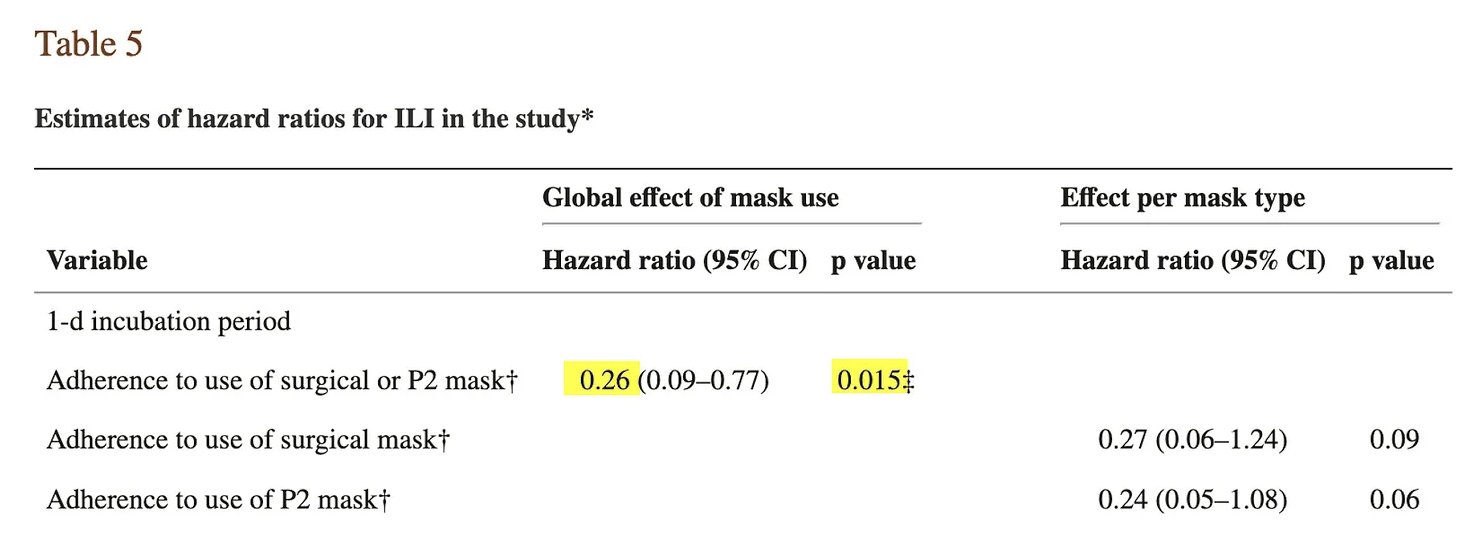Thread
Do masks work?
Recently, some ppl have started claiming it's proven that they don't. Is this true?
I dove into the details, went to the sources, and what I found was so ridiculous it was FUNNY:
Recently, some ppl have started claiming it's proven that they don't. Is this true?
I dove into the details, went to the sources, and what I found was so ridiculous it was FUNNY:
From the article (edited):
The most rigorous analysis of studies on the efficacy of masks was published last month.
“There is just no evidence that masks make any difference, full stop. Makes no difference — none of it,” said the Oxford epidemiologist who is its lead author
The most rigorous analysis of studies on the efficacy of masks was published last month.
“There is just no evidence that masks make any difference, full stop. Makes no difference — none of it,” said the Oxford epidemiologist who is its lead author
That's a hardcore statement. So let's dive in. What's this study? You can find it here:
It's a Cochrane analysis (gold standard approach) and found 78 relevant studies (impressive!)
www.cochranelibrary.com/cdsr/doi/10.1002/14651858.CD006207.pub6/epdf/full
It's a Cochrane analysis (gold standard approach) and found 78 relevant studies (impressive!)
www.cochranelibrary.com/cdsr/doi/10.1002/14651858.CD006207.pub6/epdf/full
There are 3 groups of studies:
1. Flu/COVID-like illnesses: probably masks work (0.95 means it's 5% below 1, but we're not sure because the range is -16% to +9% infections with masks
2. Lab-confirmed: masks increase infections by +1%
3. Lab-confirmed non flu/COVID viruses:-42%!
1. Flu/COVID-like illnesses: probably masks work (0.95 means it's 5% below 1, but we're not sure because the range is -16% to +9% infections with masks
2. Lab-confirmed: masks increase infections by +1%
3. Lab-confirmed non flu/COVID viruses:-42%!
But that's not saying "masks don't work". That's saying "we don't know if masks work". Quite a different statement! We'll get back to that
First, let's dive into the data. What studies matter the most? Those w/ heavy weights
Abaluck 2022
Aiello 2012
Alfelali 2020
Bundgaard 2021
First, let's dive into the data. What studies matter the most? Those w/ heavy weights
Abaluck 2022
Aiello 2012
Alfelali 2020
Bundgaard 2021
Abaluck 2022: This is the gold standard of mask studies. These guys looked at 350,000 people!!! And did as random and blind a study they could: thousands of villages got free masks, and thousands of other villages also got mask training. -12% COVID in the trained villages.
Aiello 2012: 1st thing to notice is the year. This is pre-COVID, when masking science and awareness was much, much lower.
Anyway, what did they do? Study (ONLY!) 1,200 students across campuses in 2007-2008. Here's the result:
pubmed.ncbi.nlm.nih.gov/22295066/
Anyway, what did they do? Study (ONLY!) 1,200 students across campuses in 2007-2008. Here's the result:
pubmed.ncbi.nlm.nih.gov/22295066/
The study SUPPORTS masks! But somehow, this Cochrane meta-analysis turns it around. Okay.
Let's go to the next one: Alfelali 2020
Don't let the date confuse you. This is a 2020 study on data *from 2013 to 2015*
What did they study?
journals.plos.org/plosone/article?id=10.1371/journal.pone.0240287
Let's go to the next one: Alfelali 2020
Don't let the date confuse you. This is a 2020 study on data *from 2013 to 2015*
What did they study?
journals.plos.org/plosone/article?id=10.1371/journal.pone.0240287
7,700 (only) pilgrims going to the Hajj those years. They gave some of them free masks and told them to wear them for 4 days (the pilgrimage is usually 5-6 days). If they wore 1 mask 1 day, it counted as a "day wearing a mask".
Now imagine you're a Hajj pilgrim in 2015, before COVID. You receive free masks and are told how to wear them. You'll then hang out for 24h with millions of other pilgrims
How well do you think you're going to be wearing your masks??
How well do you think you're going to be wearing your masks??
But... hoooow does the Cochrane meta-analysis incorporate this info into their meta-analysis? For the 2nd group of studies, they say this study counts for more than one fourth of the impact, and the impact was... Masks increased infections by 40%!!!
I mean, they're technically right on that 40%. That's what the study recorded. But they couldn't claim w/ a straight face that masks did that pre-COVID, when nobody had a political opinion about it, or where 2nd order effects ("mask-wearers are too confident!") were very unlikely
OK, onto the 4th and last study, the Danish Bundgaard 2021, the only other COVID-era study (during the height of COVID in April and May 2020)
They trained 5,000 ppl to do social distancing, and randomly told a sub-group to also wear masks (and gave them free masks)
The result?
They trained 5,000 ppl to do social distancing, and randomly told a sub-group to also wear masks (and gave them free masks)
The result?
COVID infections were lower by 18% in the group wearing masks.
It's not a lot of ppl, but it's much more recent, post-COVID, controls for "we just did an intervention", was as blind as they could make it...
It's not a lot of ppl, but it's much more recent, post-COVID, controls for "we just did an intervention", was as blind as they could make it...
Somehow, these Cochrane magicians mix these 4 studies to find that masks don't work! How do they do that?
1. Disregard the original studies' own conclusions
2. Count implausible results (+40% infections due to masks in the Hajj? Really?)
3. Double the weight of convenient studies
1. Disregard the original studies' own conclusions
2. Count implausible results (+40% infections due to masks in the Hajj? Really?)
3. Double the weight of convenient studies
Notice how the Hajj and college studies (Aiello and Alfelali) appear in 2 sections. In the 1st, their weights add up to as much as a COVID-era study of 350,000 ppl (this is actually funny)
In the 2nd section, since the best study didn't do lab analyses... conveniently absent!
In the 2nd section, since the best study didn't do lab analyses... conveniently absent!
There's more! Look what they snuck in:
A study that claims masks increase the risk of infection by 150%?! WHAT HAPPENED IN THAT STUDY?! I want to know more!
So let's go to it:
www.ncbi.nlm.nih.gov/pmc/articles/PMC2662657/
A study that claims masks increase the risk of infection by 150%?! WHAT HAPPENED IN THAT STUDY?! I want to know more!
So let's go to it:
www.ncbi.nlm.nih.gov/pmc/articles/PMC2662657/
What does the abstract say?
These are true magicians! They took a study that claims that mask adherence significantly reduce the risk of influenza-like illnesses, and then twisted it to say masks increased risks by 150%!
Wow
These are true magicians! They took a study that claims that mask adherence significantly reduce the risk of influenza-like illnesses, and then twisted it to say masks increased risks by 150%!
Wow
I looked at the Cochrane analysis and can't reconstruct the 2.51 RR
I looked at MacIntyre 2009 and this is what I can tell:
It's a 2006-2007 (!!) study of 286 ppl (!!!) where a grand total of 17ppl (!!!!!) were infected, and where, as far as I can tell, masks were overall good?
I looked at MacIntyre 2009 and this is what I can tell:
It's a 2006-2007 (!!) study of 286 ppl (!!!) where a grand total of 17ppl (!!!!!) were infected, and where, as far as I can tell, masks were overall good?
If you just go to these primary studies, you realize NONE of them support the conclusion of the meta-analysis. Brutal.
If you adjust the math accordingly, you find that there's just 2 relevant studies (Bangladesh and Denmark), and both say: MASKS WORK
If you adjust the math accordingly, you find that there's just 2 relevant studies (Bangladesh and Denmark), and both say: MASKS WORK
• More fun facts: the 78 RCT studies have a total of 611k participants... More than half from the Bangladesh study!
• There are MANY other COVID-time mask studies that showed impressive results. They're not perfect either. But better than theirs?
www.cdc.gov/coronavirus/2019-ncov/science/science-briefs/masking-science-sars-cov2.html
• There are MANY other COVID-time mask studies that showed impressive results. They're not perfect either. But better than theirs?
www.cdc.gov/coronavirus/2019-ncov/science/science-briefs/masking-science-sars-cov2.html
I might be wrong. This sounds so very laughably flawed that I should assume I'm not looking at it correctly. If so, please LMK replying to this tweet here, and I'll correct my thread and upcoming article to reflect it
Subscribe to receive it, it's free:
unchartedterritories.tomaspueyo.com/subscribe
Subscribe to receive it, it's free:
unchartedterritories.tomaspueyo.com/subscribe
In the meantime, it sounds like very flimsy data to make bombastic statements like the one from the lead author of the study:
“There is just no evidence that masks make any difference, full stop. Makes no difference.”
Especially since... It's not what his own study says!
“There is just no evidence that masks make any difference, full stop. Makes no difference.”
Especially since... It's not what his own study says!
As for Bret Stephens, the author of the OpEd, can you point at what I got wrong? And if I didn't, maybe you can follow your own advice:
I've written a lot about COVID, but I also go deep into other topics. I write a thread like this once a week or so. Follow me for more
A couple of examples. This is a thread on India's population
A couple of examples. This is a thread on India's population
And this one is about understanding the oceans
Hey @bariweiss @JohnTierneyNYC sometimes I also use studies that support my conclusions without checking them. I did the work for you in this thread, so you can realize the cochrane study you quote also cherry-picks and you can correct your article
open.substack.com/pub/bariweiss/p/the-real-science-on-masks-they-make
open.substack.com/pub/bariweiss/p/the-real-science-on-masks-they-make
OK thx to a reader tip, I found the magic where the 2.51 comes from:
If 5 ppl in a control group of an Australian study from 15 years ago tested positive instead of negative to a PCR test, this Cochrane analysis would flip its conclusions!
If 5 ppl in a control group of an Australian study from 15 years ago tested positive instead of negative to a PCR test, this Cochrane analysis would flip its conclusions!
And I found how they get to use numbers that contradict the study's own conclusions:
The study controlled for proper mask us and saw a brutal -74% infections when that happened. This number, unlike the one they used, *was statistically significant*.
They just... disregarded it?!
The study controlled for proper mask us and saw a brutal -74% infections when that happened. This number, unlike the one they used, *was statistically significant*.
They just... disregarded it?!
Hi @Globalbiosec did you realize the Jefferson et al. conclusions hinge on the results of your 2009 study?
What do you think of the fact they used the results where your team didn't control for proper mask usage, instead of the ones where you did?
Honest question
What do you think of the fact they used the results where your team didn't control for proper mask usage, instead of the ones where you did?
Honest question
Here’s an update to the thread, correcting a wrong assumption on intent and adding color to weights and study inclusion
Mentions
See All
Derek Thompson @DerekThompson
·
Feb 27, 2023
Amazing thread on that big mask meta-analysis. TLDR: - The mask-effectiveness literature is infuriatingly scattershot - The Cochrane analysis is deeply flawed in often hilarious ways - The only thing to be said confidently is that the Bret Stephens column was very terrible
